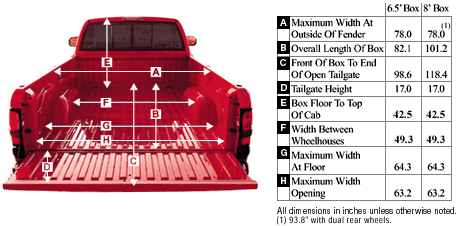Hyundai Luxury Car Brand: The Ascent of Genesis
Hyundai Luxury Car Brand: The Ascent of Genesis cars.truckstrend.com
For decades, the name Hyundai was synonymous with value, reliability, and an impressive upward trajectory in the automotive industry. However, a quiet revolution was brewing within the South Korean giant, a strategic ambition to challenge the established titans of luxury motoring. This ambition crystallized into the creation of Genesis, Hyundai’s dedicated luxury car brand. More than just a premium trim level or an upscale variant, Genesis was launched as a distinct entity, designed from the ground up to offer a refined blend of sophisticated design, advanced technology, thrilling performance, and an unparalleled customer experience. This article delves into the fascinating journey of Genesis, exploring its foundations, design philosophy, technological prowess, unique ownership model, and its growing footprint in the highly competitive luxury segment.
The Genesis Journey: From Premium Model to Standalone Marque
Hyundai Luxury Car Brand: The Ascent of Genesis
The seeds of Genesis were sown in the early 2000s when Hyundai began to explore the premium segment. Their first foray was the Hyundai Equus, a full-size luxury sedan that offered incredible value but struggled to shed the mainstream perception of its parent brand. The breakthrough came with the original Hyundai Genesis sedan, launched in 2008. This car, praised for its quality, features, and driving dynamics at an accessible price point, demonstrated that Hyundai had the engineering capability to compete with luxury vehicles.
Recognizing the potential and the limitations of selling luxury under a mass-market badge, Hyundai made a bold decision in 2015: to spin off Genesis into its own independent luxury brand. This strategic move was crucial. It allowed Genesis to develop a unique brand identity, distinct design language, dedicated dealer network (or in many cases, separate showrooms/service areas), and a bespoke customer service model. The aim was not just to build luxury cars, but to cultivate a luxury experience that rivaled or even surpassed established brands like Mercedes-Benz, BMW, and Lexus. The brand officially launched with the G90 flagship sedan, signalling its serious intent to compete at the very top.
Design Philosophy: Athletic Elegance and the Two-Line Signature
One of the most striking aspects of Genesis is its distinctive design philosophy, dubbed "Athletic Elegance." This ethos seeks to balance dynamic sportiness with refined grace, creating vehicles that are both visually powerful and aesthetically pleasing. The brand has attracted top design talent, including Luc Donckerwolke, who previously worked for Lamborghini and Bentley.
Key design elements that define Genesis vehicles include:
- The Crest Grille: A large, shield-shaped grille that dominates the front fascia, giving each model a commanding presence.
- The Quad Lamps: Perhaps the most recognizable signature, these consist of two horizontal lines of LED lighting that flow from the headlights to the side indicators and are mirrored in the taillights. This "two-line" motif is not just a styling cue; it represents the brand’s commitment to duality – innovation and tradition, performance and comfort.
- Parabolic Line: A strong, elegant character line that sweeps along the side of the vehicle, emphasizing its length and fluidity.
- Beauty of White Space: Inside, Genesis cabins embrace a minimalist approach, prioritizing uncluttered surfaces and intuitive layouts to enhance the sense of spaciousness and tranquility. High-quality materials like genuine leather, open-pore wood, and aluminum accents are used extensively, creating a tactile and visually rich environment.
This cohesive design language ensures that every Genesis model, from the compact G70 sedan to the imposing GV80 SUV, is immediately recognizable as part of the family, projecting an image of sophistication and modern luxury.
Engineering Excellence & Cutting-Edge Technology

Underneath their elegant exteriors, Genesis vehicles boast a foundation of robust engineering and a wealth of advanced technology. The brand leverages Hyundai Motor Group’s significant R&D capabilities, but tailors technologies specifically for the luxury segment.
- Powertrains: Genesis offers a range of potent powertrains, including turbocharged four-cylinder and V6 engines, providing strong acceleration and smooth power delivery. Many models feature available all-wheel drive (AWD) for enhanced traction and stability. The brand has also rapidly expanded its electric vehicle (EV) lineup, with models like the GV60, Electrified G80, and Electrified GV70 showcasing impressive range, rapid charging capabilities, and innovative EV-specific features.
- Ride and Handling: Engineers meticulously tune the suspension systems for a balance of comfort and dynamic agility. Adaptive suspension systems, often linked to road-scanning cameras, proactively adjust damping to absorb bumps and optimize handling.
- Advanced Driver-Assistance Systems (ADAS): Genesis is at the forefront of safety and convenience technologies. Features like Highway Driving Assist (HDA) offer semi-autonomous driving capabilities, combining adaptive cruise control with lane-keeping assist. Other systems include Blind-Spot View Monitor (which displays a camera feed of the blind spot in the instrument cluster), Remote Smart Parking Assist, and a comprehensive suite of collision avoidance assists.
- Infotainment and Connectivity: Large, high-resolution touchscreens (often 14.5 inches or larger) dominate the dashboards, providing intuitive access to navigation, media, and vehicle settings. Features like Apple CarPlay, Android Auto, over-the-air (OTA) updates, and advanced voice recognition are standard. The Genesis Connected Services suite offers remote vehicle control, emergency assistance, and personalized concierge services.
- Noise, Vibration, and Harshness (NVH): Significant effort is put into isolating the cabin from road and engine noise, employing advanced sound-deadening materials, acoustic glass, and active noise cancellation technology to ensure a serene driving environment.
The Genesis Model Lineup: A Portfolio of Luxury
Genesis has rapidly expanded its product portfolio to cover key segments of the luxury market, offering both sedans and SUVs, with a growing emphasis on electric vehicles.
- Genesis G70: A compact luxury sport sedan, direct competitor to the BMW 3 Series and Mercedes-Benz C-Class. It’s known for its sharp handling, powerful engines, and engaging driving dynamics.
- Genesis G80: The mid-size luxury sedan, the spiritual successor to the original Hyundai Genesis. It offers a refined ride, elegant design, and a spacious, technology-rich cabin, competing with the BMW 5 Series and Mercedes-Benz E-Class. The Electrified G80 offers a full-electric variant with impressive performance and range.
- Genesis G90: The flagship full-size luxury sedan, designed to challenge the S-Class and 7 Series. It epitomizes Genesis’s commitment to ultimate comfort, advanced technology, and a truly opulent ownership experience.
- Genesis GV60: The brand’s first dedicated electric SUV, built on the E-GMP platform. It’s a compact crossover known for its unique design, innovative features like the Crystal Sphere shifter, and exhilarating performance.
- Genesis GV70: A compact luxury SUV, aimed at the highly competitive segment dominated by the BMW X3 and Mercedes-Benz GLC. It blends dynamic styling, spirited performance, and a luxurious interior. The Electrified GV70 offers a powerful electric option.
- Genesis GV80: The brand’s first mid-size SUV, and a strong contender against the BMW X5 and Mercedes-Benz GLE. It combines commanding presence, a sumptuously appointed interior, and impressive ride comfort.
The Genesis Difference: A Unique Ownership Experience
Beyond the vehicles themselves, Genesis distinguishes itself through a customer-centric approach to ownership, aiming to remove the traditional pain points of luxury car ownership.
- Concierge Services: Many Genesis purchases include complimentary scheduled maintenance, valet services (where the dealership picks up and drops off your car for service), and roadside assistance for a set period. This hassle-free approach is a significant draw for busy luxury buyers.
- At-Home Test Drives and Deliveries: Genesis often offers the convenience of bringing a test drive vehicle to your home or office, and delivering your new car directly to you, minimizing time spent at a dealership.
- Personalized Experience: The brand emphasizes a more personal and less transactional relationship with its clients, focusing on building long-term loyalty through exceptional service.
- Warranty: Genesis vehicles typically come with an industry-leading warranty, further enhancing peace of mind for owners.
Market Positioning, Competition, and Challenges
Genesis has strategically positioned itself as a modern luxury brand, offering compelling alternatives to established players. It often provides a more comprehensive suite of standard features and a more distinctive design than similarly priced German or Japanese rivals.
Competition: Genesis directly competes with:
- German Luxury: Mercedes-Benz, BMW, Audi (for performance, technology, and prestige).
- Japanese Luxury: Lexus, Acura, Infiniti (for reliability, value, and customer service).
- American Luxury: Cadillac, Lincoln (for distinctive styling and comfort).
Challenges:
- Brand Recognition and Perception: Despite its rapid growth, Genesis is still a relatively young brand. Overcoming the legacy perception of its Hyundai origins and building intrinsic luxury prestige takes time and consistent effort.
- Dealer Network: While improving, Genesis’s dedicated sales and service network is not as extensive as those of long-established luxury brands, which can be a consideration for some buyers.
- Resale Value: As a newer entrant, Genesis vehicles may not always hold their value as strongly as some German competitors, though this is improving as the brand gains traction.
Practical Advice for Prospective Buyers
If you’re considering a luxury vehicle, Genesis deserves serious consideration. Here’s some practical advice:
- Experience it Firsthand: Don’t just read reviews. Visit a Genesis studio or dealership, sit in the cars, and take an extended test drive. Pay attention to the interior quality, technology interface, and how the car feels on the road.
- Compare Features and Value: Genesis often offers a higher level of standard features compared to its competitors at similar price points. Create a side-by-side comparison of features, options, and overall value.
- Understand the Ownership Experience: Inquire about the specific concierge services, warranty, and maintenance programs offered in your region. These benefits can significantly enhance the ownership experience and reduce long-term costs.
- Consider Your Priorities: Are you looking for raw performance, ultimate comfort, cutting-edge technology, or a distinctive design? Genesis excels in different areas across its lineup, so match the model to your personal preferences.
- Explore Electric Options: If you’re open to EVs, the Genesis electric lineup (GV60, Electrified G80, Electrified GV70) offers compelling alternatives with unique styling and impressive EV credentials.
- Don’t Be Afraid to Be Different: Choosing Genesis means opting for a luxury brand that stands out from the crowd, offering a fresh perspective on what luxury can be.
Concluding Summary
The journey of Genesis, Hyundai’s luxury car brand, is a testament to bold vision and relentless execution. From its humble beginnings as a premium Hyundai model, it has rapidly evolved into a formidable competitor in the global luxury market. By marrying "Athletic Elegance" in design with robust engineering, advanced technology, and a customer-centric ownership model, Genesis has carved out a unique identity. While challenges remain in establishing deep-rooted brand prestige and expanding its physical footprint, Genesis continues to impress critics and captivate buyers with its compelling blend of style, substance, and service. It represents a new era of luxury, proving that innovation and a fresh approach can disrupt even the most entrenched automotive segments.
Genesis Luxury Car Brand: Estimated Starting MSRP Table (2024 Models, US Market)
Please note: Prices are approximate starting Manufacturer’s Suggested Retail Prices (MSRP) for the base model without options, destination charges, taxes, or dealer markups. Actual prices may vary significantly based on trim level, optional features, region, and market conditions. This table is for illustrative purposes only.
| Model | Body Style | Powertrain (Base) | Approx. Starting MSRP (USD) | Key Competitors (Examples) |
|---|---|---|---|---|
| Genesis G70 | Sedan | 2.5L Turbo I4 | $41,500 | BMW 3 Series, Mercedes-Benz C-Class |
| Genesis G80 | Sedan | 2.5L Turbo I4 | $55,000 | BMW 5 Series, Mercedes-Benz E-Class |
| Electrified G80 | Sedan | Dual Electric Motors | $75,000 | Mercedes-Benz EQE Sedan, Tesla Model S |
| Genesis G90 | Sedan | 3.5L Twin-Turbo V6 | $90,000 | Mercedes-Benz S-Class, BMW 7 Series |
| Genesis GV60 | SUV (EV) | Dual Electric Motors | $53,000 | Tesla Model Y, Audi Q4 e-tron |
| Genesis GV70 | SUV | 2.5L Turbo I4 | $45,000 | BMW X3, Mercedes-Benz GLC |
| Electrified GV70 | SUV (EV) | Dual Electric Motors | $67,000 | Audi Q5 e-tron, BMW iX3 (global) |
| Genesis GV80 | SUV | 2.5L Turbo I4 | $58,000 | BMW X5, Mercedes-Benz GLE |
Frequently Asked Questions (FAQ) about Hyundai Luxury Car Brand (Genesis)
Q1: Is Genesis a separate company from Hyundai?
A1: Yes, Genesis is a distinct luxury brand owned by the Hyundai Motor Group. While it leverages Hyundai’s engineering and manufacturing capabilities, it operates as a separate entity with its own design philosophy, marketing, and often, dedicated sales and service channels.
Q2: Where are Genesis cars manufactured?
A2: Genesis vehicles are primarily manufactured in South Korea, at Hyundai Motor Group’s advanced production facilities.
Q3: How does Genesis compare to established luxury brands like BMW, Mercedes-Benz, or Lexus?
A3: Genesis aims to compete directly with these brands by offering compelling design, advanced technology, strong performance, and a unique customer-focused ownership experience. Many reviewers and owners find Genesis vehicles to offer comparable or superior quality and features, often at a more competitive price point.
Q4: What is the warranty coverage for Genesis vehicles?
A4: Genesis typically offers an industry-leading warranty, which often includes a 5-year/60,000-mile bumper-to-bumper warranty and a 10-year/100,000-mile powertrain warranty (whichever comes first). Specific terms may vary by region and model year.
Q5: Does Genesis offer electric vehicles (EVs)?
A5: Yes, Genesis has a rapidly expanding lineup of electric vehicles. Key EV models include the Genesis GV60 (a dedicated EV SUV), the Electrified G80 (an electric version of the G80 sedan), and the Electrified GV70 (an electric version of the GV70 SUV).
Q6: What unique ownership benefits does Genesis offer?
A6: Genesis focuses on a "stress-free" ownership experience. Benefits often include complimentary scheduled maintenance for a period, valet service for maintenance (where your car is picked up and dropped off), Genesis Connected Services (remote features, emergency assistance), and roadside assistance. Specific benefits can vary by region and model.
Q7: Is it difficult to find a Genesis dealership or service center?
A7: Genesis is continuously expanding its dedicated retail network. While not as widespread as some older luxury brands, many Hyundai dealerships have separate Genesis showrooms or dedicated service bays. It’s advisable to check the Genesis website for authorized locations near you.
Q8: Are Genesis cars reliable?
A8: Genesis benefits from Hyundai’s strong reputation for reliability. Early indications and owner surveys suggest Genesis vehicles are generally reliable, often ranking well in initial quality and dependability studies.
Q9: What is the "Two-Line" signature design element in Genesis cars?
A9: The "Two-Line" signature refers to the distinctive dual horizontal lines of LED lighting found in the headlights, taillights, and sometimes side markers of Genesis vehicles. It’s a key design motif that helps define the brand’s visual identity and represents its philosophy of balancing innovation and tradition.






